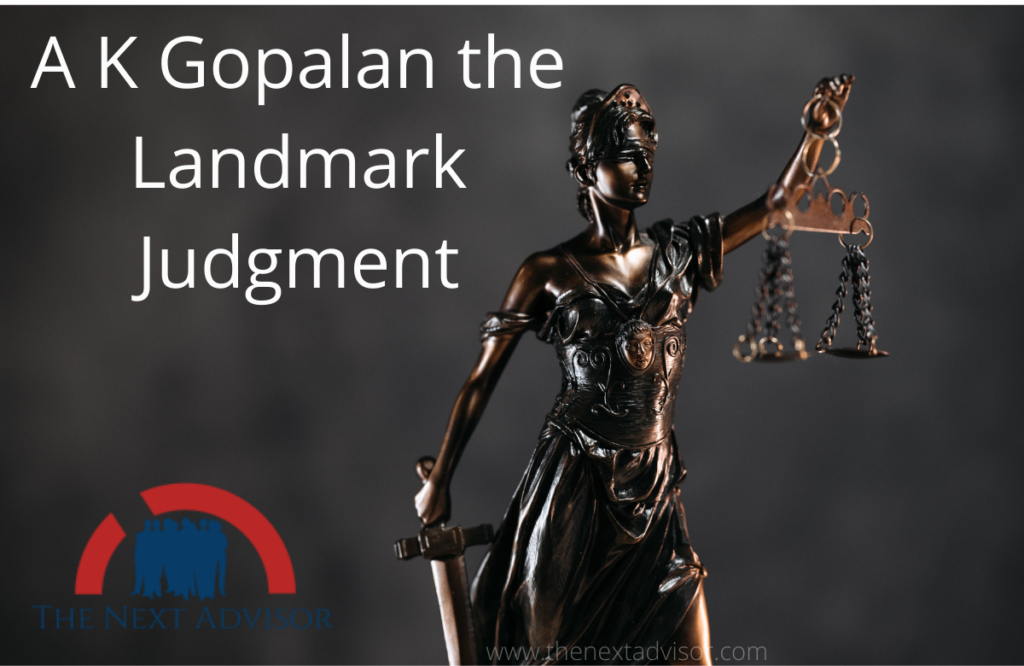Facts of the A k Gopalan the Landmark Judgment:- The petitioner of the A K Gopalan the Landmark Judgment was detained under the Preventive Detention Sct (Act IV of 1950). In this act, an action is taken beforehand to prevent the possible commitment of a crime. Preventive detention thus is an action taken on grounds of suspicion that some wrong actions may be done by the person concerned.
The petitioner applied under Article 32 of the Constitution for his release from detention, on the ground that the said Act contravened the provisions of Articles 13, 19, 21, and 22 of the Indian Constitution and was consequently ultra vires and that his detention was therefore illegal.
What was the Question of law in A K Gopalan the Landmark Judgment? –
1. Whether the Preventive Detention Act, 1950 violates the fundamental rights guaranteed under the following Articles?
– Article 13 (laws inconsistent with or in derogation of fundamental rights)
– Article 19 (Right to Freedom) and
– Article 21 ( Right to life and personal liberty).
2. Whether Article 22 of the Indian constitution (Protection against arrest and detention ) of the Constitution and is therefore void?
What does the Supreme Court hold in A K Gopalan the Landmark Judgment?
The Supreme Court held that the Preventive Detention Act does not abridge the detainee’s right to freedom guaranteed under the provisions of Article 19 of the Constitution.
– Delinking Article 19 from Article 21, the court held that the protection given by Article 21 is more general in nature; while Article 19 gives rights specifically only to the citizens of India while Article 21 is applicable to all persons.
-Reinterpreting Article 21, the Court said that the words ” procedure established by law ” in Article 21 is different from “due process of law” as mentioned in the United States Constitution in a similar provision.
-Thirdly, the court said that Article 22 empowers the Parliament to legislate on the subject of preventive detention. Clauses 4 to 7 of the same Article put certain limitations on laws relating to preventive detention.
– Any procedure prescribed under any validly enacted law cannot be held void till the time it does not come in conflict with Articles 22(4) to (7). In conclusion, the Supreme court held that Articles 19, 21, and 22 are mutually exclusive and Article 19 was not to be applied to a law affecting personal liberty to which Article 21 applies. A law that affected life and personal liberty could not be declared unconstitutional only on account that it did not follow due process or lacked principles of natural justice. This meant that Article 21, provided no protection against competent legislative action.
These are some important points for the exam and knowledge purpose, for the deep study of the A K Gopalan the Landmark Judgment you can refer – to A K Gopalan Versus State Of Madras, 1950.
